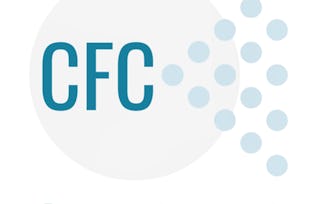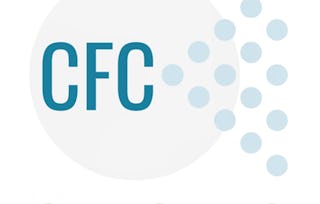In this course, you will learn how to lead and facilitate an effective cross-functional collaboration. You will learn facilitation techniques, ways of structuring collaboration, tactics for turning a group of individuals into a team and selecting the right process for product development for co-located, distributed, and hybrid teams.

Facilitating and Leading Cross-Functional Collaboration

Facilitating and Leading Cross-Functional Collaboration
This course is part of Cross-Functional Collaboration Specialization

Instructor: Oxana Trotsenko
1,670 already enrolled
Included with
17 reviews
Recommended experience
What you'll learn
Master cross-functional collaboration, set product goals, run empathy workshops, create team spaces, and choose the best agile framework for success
Skills you'll gain
- Product Development
- Conflict Management
- Product Roadmaps
- Team Building
- Collaboration
- Empathy
- Cross-Functional Team Leadership
- Team Motivation
- Cross-Functional Collaboration
- Product Management
- Goal Setting
- Business Priorities
- Leadership
- Team Management
- Meeting Facilitation
- Continuous Improvement Process
- Discussion Facilitation
- Skills section collapsed. Showing 9 of 17 skills.
Details to know

Add to your LinkedIn profile
27 assignments
See how employees at top companies are mastering in-demand skills

Build your subject-matter expertise
- Learn new concepts from industry experts
- Gain a foundational understanding of a subject or tool
- Develop job-relevant skills with hands-on projects
- Earn a shareable career certificate

There are 5 modules in this course
Leader and a facilitator roles set the tone of cross-functional collaboration. They either help the team do their best thinking or they hinder the progress. In this module, you will learn the difference between being a leader and a facilitator. You will also learn how you can help the cross-functional team overcome the most common collaboration anti-patterns depending on the role you play.
What's included
4 videos3 assignments
Working with various leaders throughout the years, I have noticed that the skill of facilitation is grossly undervalued. Wouldn’t a leader want to know how to help a team do their best thinking or how to help the team get out of a gridlock of thoughts and ideas? A concept of servant leadership alludes to the idea that a leader is the one who helps unlock the talent, creativity and the potential of the team. Facilitation in that sense is a practical skill of serving others, helping teams find cohesion, come up with innovative solutions, challenge their own thinking and maximize customer value. In this module, you will learn how teams think so you can be prepared for the psychological depth and emotional range of working with groups of individuals. You will learn how to structure, organize, and facilitate three essential phases of any workshop: preparation, facilitation, and a follow-up.
What's included
5 videos4 assignments
Collaboration exists for a specific purpose - to deliver desired business outcomes. Because of that, leadership always seeks to understand answers to the most common business questions - what the solution is, when it will be delivered, how much it will cost, and how much revenue it will generate. A cross-functional team must be aware of these questions and be ready to answer them or have a structured way of addressing them. In this module, you will learn ways of addressing these questions even early in the process when your team might not have an idea of what the solution will be yet. Collaboration without structure can quickly turn into chaos. To prevent this from happening, we need to address four things. First, remember what business outcomes we are trying to achieve. Second, add light structure and definition of roles and responsibilities. Third, understand how people inside and outside of the organization may impact your work, and lastly, be clear about the product vision, goal, and how we are going to deliver it. As you continue working though this module, you will learn how to address these four elements. By the end of the module, you will be equipped with tools and techniques for creating shared understanding and team alignment around the problem, vision, goals, success measures, and creating an objectives-based roadmap of the work ahead.
What's included
13 videos6 readings11 assignments
Every team goes through a variation of Bruce Tuckman’s forming-storming-norming-performing journey. The pace with which people travel through that journey varies greatly, but most importantly, we can assist a set of individuals in becoming a true team. In this module, you will learn tools and techniques that will help expedite team bonding by cultivating empathy, proactively discussing common values, working agreements, bringing potential conflicts out in the open early in the collaboration process, creating collaboration space and enabling a culture of continuous improvement in co-located and distributed teams.
What's included
5 videos1 reading6 assignments
So far we discussed interpersonal team dynamics, roles and team structure, and how to align team members around the product vision, goals and product delivery. The last topic of discussion is the team process. Or, in other words, how exactly the team will be delivering its work. By the end of the module, you will learn what key principles you should consider as you assist the team with finding the right process for them in the context of product development lifecycle.
What's included
2 videos1 reading3 assignments
Earn a career certificate
Add this credential to your LinkedIn profile, resume, or CV. Share it on social media and in your performance review.
Instructor

Offered by
Explore more from Leadership and Management
 Status: Free Trial
Status: Free TrialUniversity of Colorado System
 Status: Preview
Status: PreviewStarweaver
 Status: Free Trial
Status: Free TrialUniversity of Colorado System
 Status: Free Trial
Status: Free TrialUniversity of Colorado System
Why people choose Coursera for their career

Felipe M.

Jennifer J.

Larry W.

Chaitanya A.

Open new doors with Coursera Plus
Unlimited access to 10,000+ world-class courses, hands-on projects, and job-ready certificate programs - all included in your subscription
Advance your career with an online degree
Earn a degree from world-class universities - 100% online
Join over 3,400 global companies that choose Coursera for Business
Upskill your employees to excel in the digital economy
Frequently asked questions
To access the course materials, assignments and to earn a Certificate, you will need to purchase the Certificate experience when you enroll in a course. You can try a Free Trial instead, or apply for Financial Aid. The course may offer 'Full Course, No Certificate' instead. This option lets you see all course materials, submit required assessments, and get a final grade. This also means that you will not be able to purchase a Certificate experience.
When you enroll in the course, you get access to all of the courses in the Specialization, and you earn a certificate when you complete the work. Your electronic Certificate will be added to your Accomplishments page - from there, you can print your Certificate or add it to your LinkedIn profile.
Yes. In select learning programs, you can apply for financial aid or a scholarship if you can’t afford the enrollment fee. If fin aid or scholarship is available for your learning program selection, you’ll find a link to apply on the description page.
More questions
Financial aid available,

